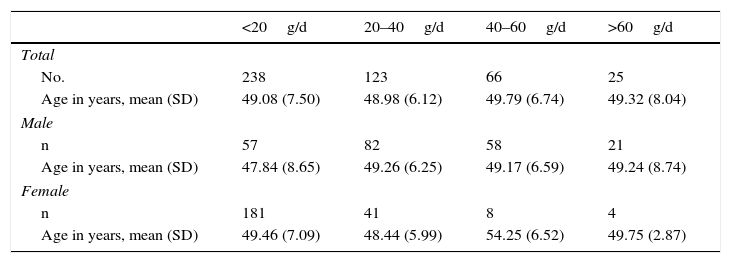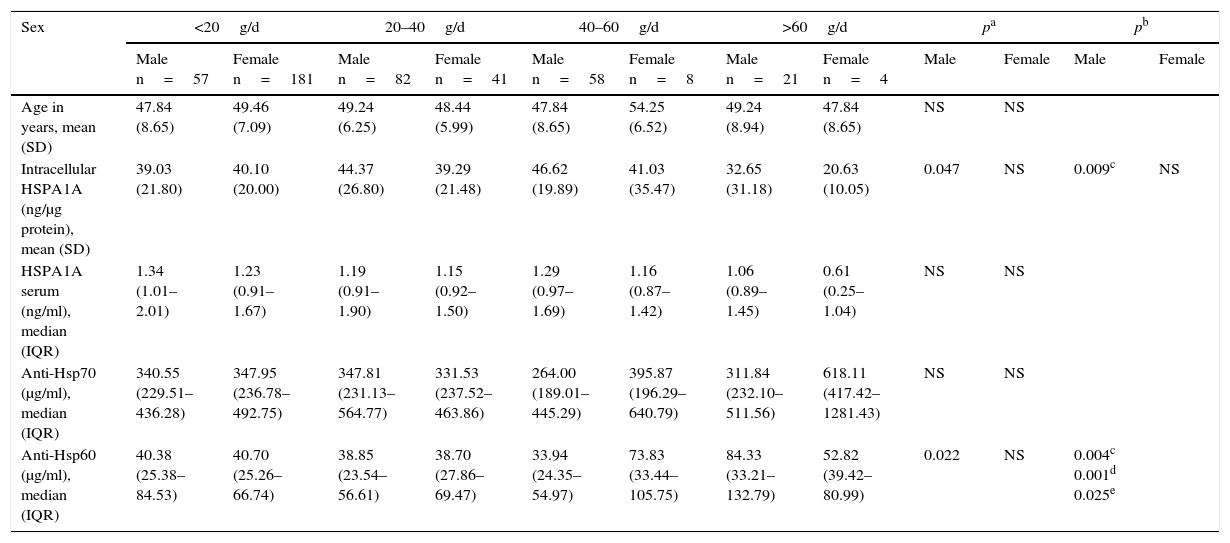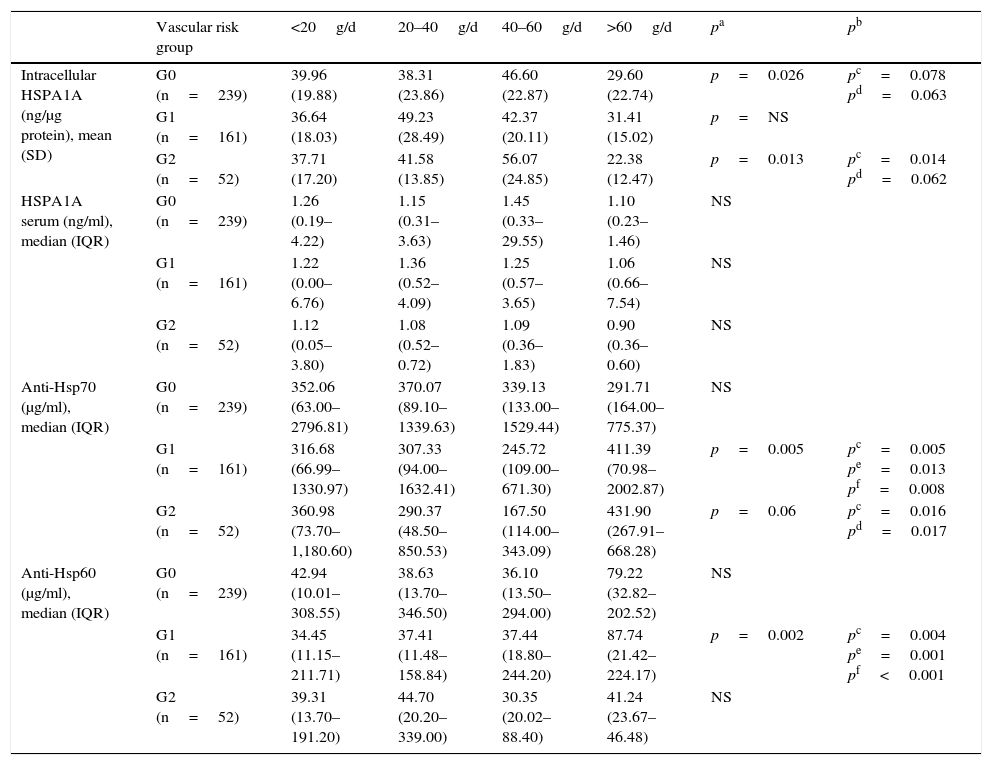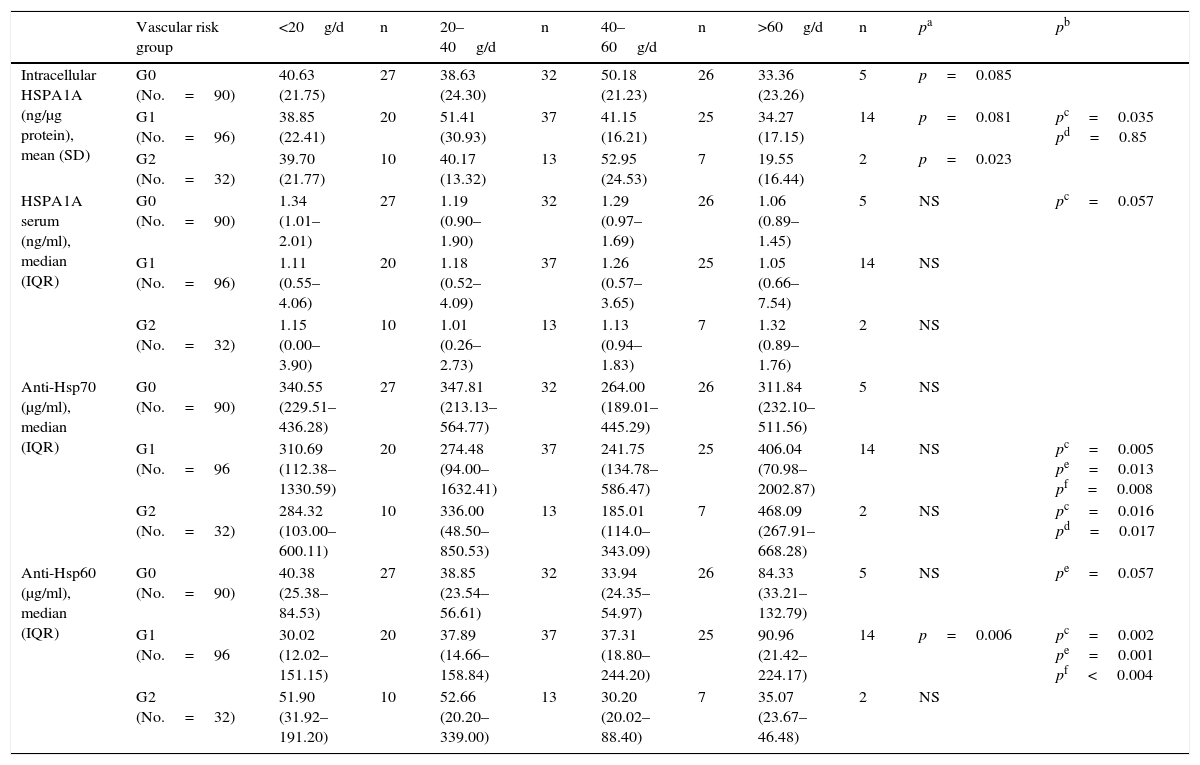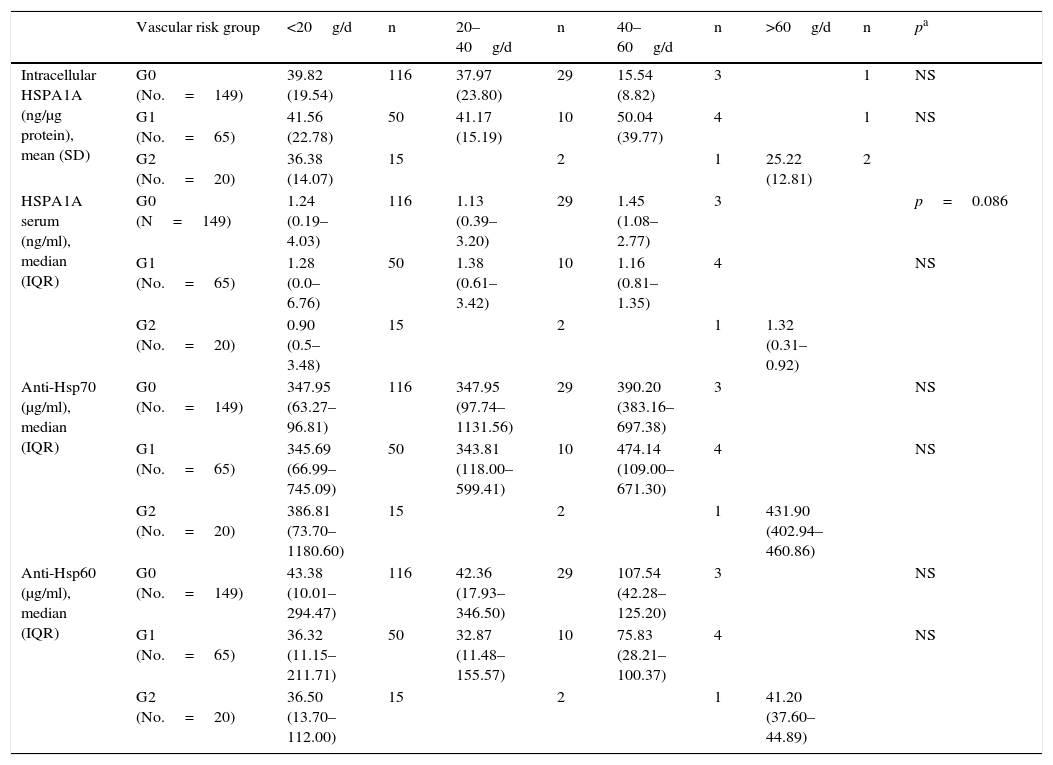To study whether the cardioprotective effect of regular alcohol consumption can be explained by the heat shock proteins (HSP), given their pathogenic role in atherosclerosis.
Material and methodsCross-sectional epidemiological study on 452 men and women aged 40–60. Clinical history, epidemiological survey (frequency of average alcohol consumption) and biochemical analysis was performed; Task Force Chart was applied for classification according to the risk of vascular disease. Intracellular HSPA1A, circulating HSPA1A and HSPD1, and anti-Hsp70/anti-Hsp60 antibodies were quantified by ELISA.
ResultsTwo hundred and thirty-eight (52.7%) were abstemious or drank <20g/d of alcohol; 123 (27.2%) drank 20–40g/d, 66 (14.6%) 40–60g/d and 25 >60g/d (5.5%). Two hundred and thirty-nine had no vascular risk (VR) factor or a risk <5%, 161 had moderate VR (10–20%) and 52 had established atherosclerotic disease. Drinkers of 40–60g/d showed the highest concentrations of intracellular HSPA1A, which were not significant in subjects with moderate VR. Extracellular HSPA1A did not differ and HSPD1 was undetectable. Drinkers of 40–60g/d and moderate VR or atherosclerotic disease presented the lowest concentrations of anti-Hsp70. The highest levels of serum anti-Hsp60 were shown in heavy male drinkers of >60g/d especially in subjects with moderate VR, and female drinkers of 40–60g/d.
ConclusionsThe cardioprotective effect of 40–60g/d of alcohol consumption could be due in part, to increased intracellular HSPA1A, a potent anti-inflammatory protein. Excessive intake of alcohol increases antibodies anti-Hsp60, stimulating proinflammatory cytokines. This fact may explain the mortality from cardiovascular disease in heavy drinkers. The clinical application of antibody anti-Hsps quantification has been proposed in patients at risk in order to detect atherosclerotic disease.
Estudiar si el efecto cardioprotector del consumo regular de alcohol puede explicarse a través de las heat shock proteins (HSP, «proteínas de choque térmico»), dado su papel etiopatogénico en la ateroesclerosis.
Material y métodosEstudio epidemiológico trasversal en 452 sujetos de 40-60 años de ambos sexos. Se realizó la historia clínica incluyendo frecuencia del consumo medio de alcohol y análisis bioquímicos, y se estatificó el grado de riesgo coronario según la Task Force. Se cuantificaron HSPA1A intracelular, HSPA1A y HSPD1 séricas y anti-Hsp70 y anti-Hsp60 por ELISA.
ResultadosDoscientos treinta y ocho (52,7%) sujetos eran abstemios o bebedores de<20g/d de alcohol; 123 (27,2%) bebían 20-40g/d, 66 (14,6%) 40-60g/d y 25>60g/d (5,5%). Doscientos treinta y nueve carecían de factores de riesgo vascular (RV) o tenían un RV<5%; 161 tenían RV moderado (10-20%) y 52 presentaban enfermedad ateroesclerótica instaurada. Los bebedores de 40-60g/d presentaron máximas concentraciones de HSPA1A intracelular, no significativas en RV moderado. HSPA1A sérica no presentó diferencias y HSPD1 fue indetectable. Los bebedores de 40-60g/d y RV moderado o enfermedad ateroesclerótica presentaron las menores concentraciones de anti-Hsp70. Los anti-Hsp60 fueron máximos en varones bebedores de>60g/d y en mujeres bebedoras de 40-60g/d, especialmente en RV moderado.
ConclusionesEl efecto cardioprotector del consumo de 40-60g/d de alcohol podría deberse, al menos en parte, al incremento de HSPA1A intracelular, potente proteína antiinflamatoria. El consumo excesivo regular de alcohol se asocia a un aumento de anticuerpos anti-Hsp60, estimulantes de citocinas proinflamatorias; ello podría explicar la mortalidad por enfermedad cardiovascular en estos pacientes. Se ha propuesto la aplicación clínica del seguimiento de anticuerpos anti-Hsp en pacientes en riesgo para detectar enfermedad ateroesclerótica.





